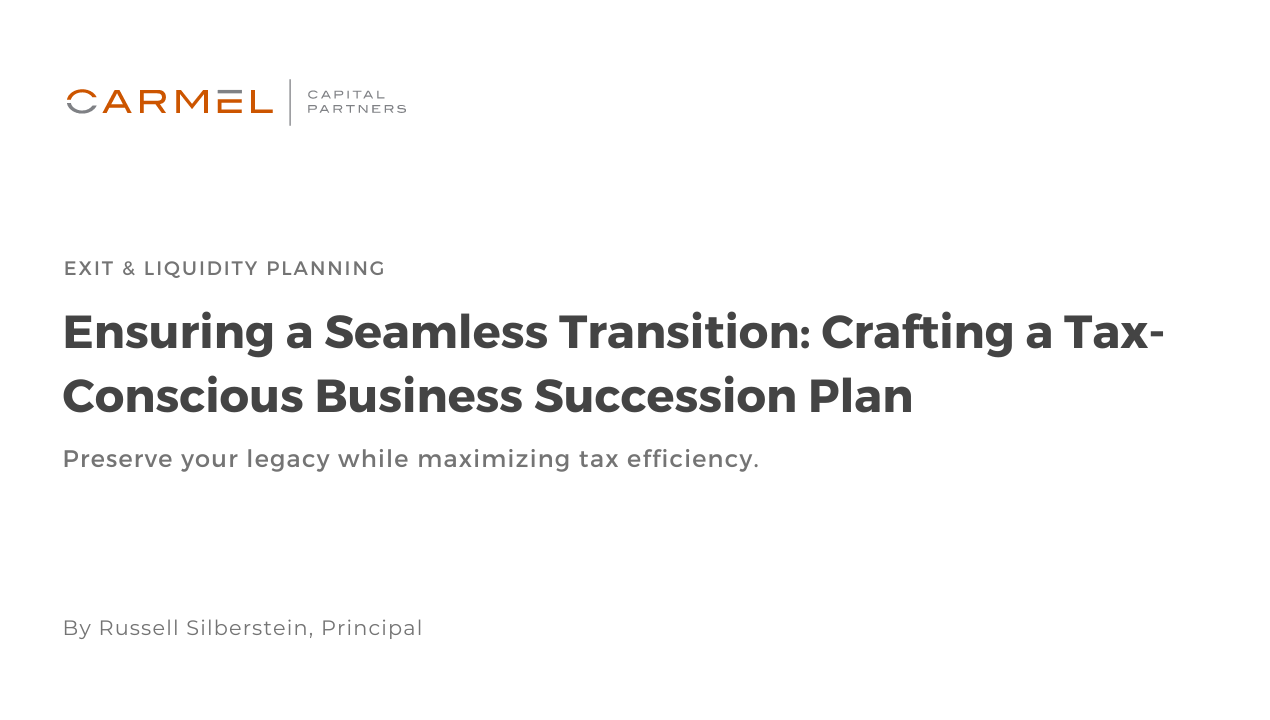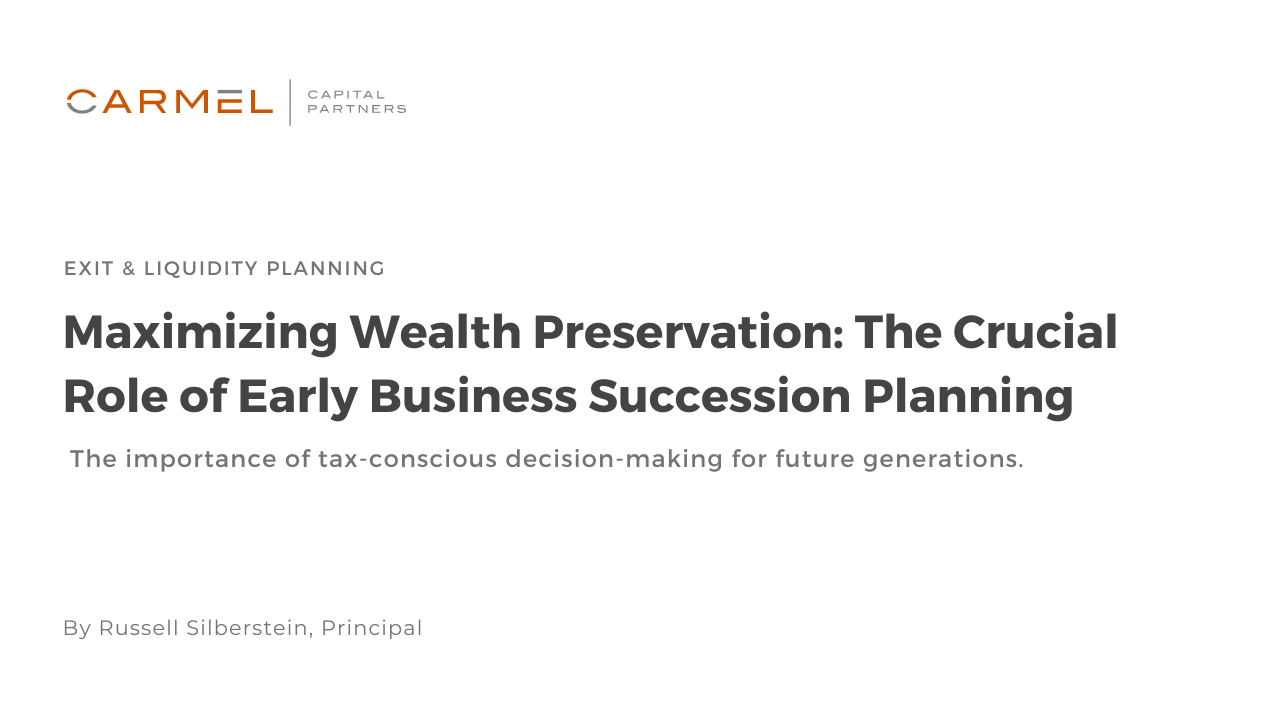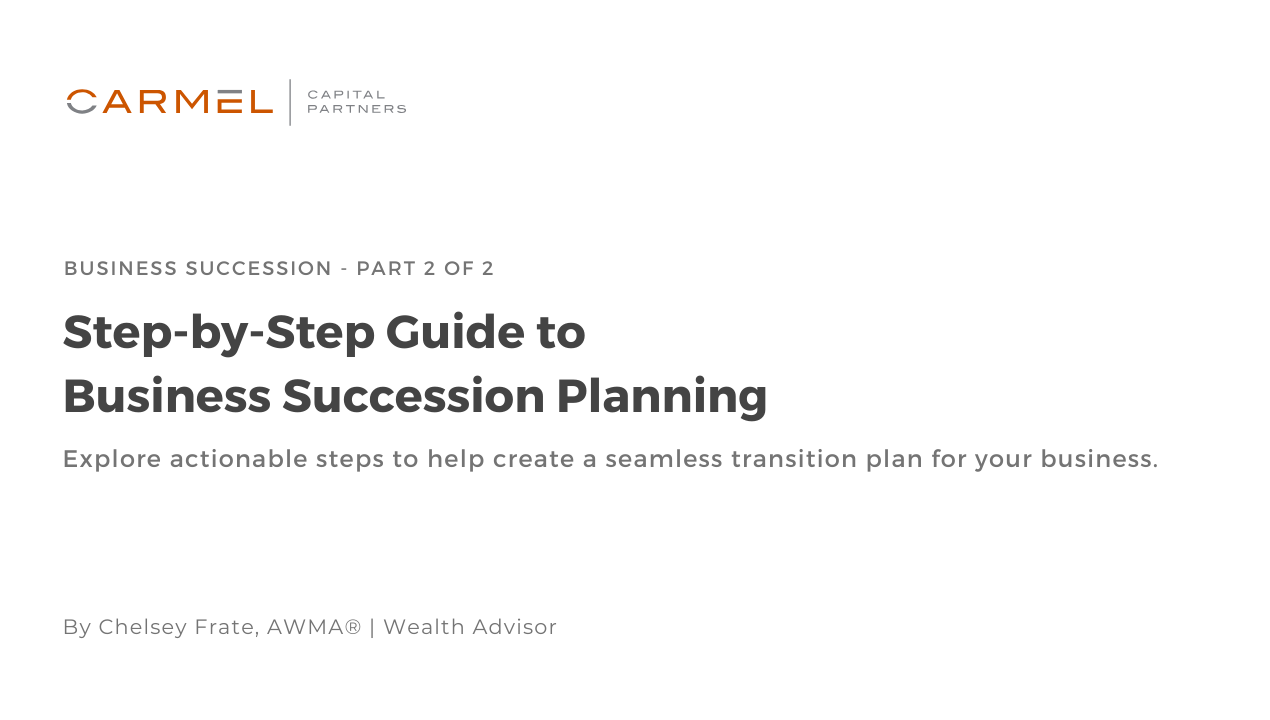Ensuring a Seamless Transition: Crafting a Tax-Conscious Business Succession Plan
For wealthy families and entrepreneurs, building a successful business is a testament to their vision, hard work, and entrepreneurial acumen....
After years of hard work building your business, the last thing you want is uncertainty when you step away. Yet, many business owners face this due to a lack of succession planning.
Succession planning isn’t just about handing over the reins. It safeguards your legacy, provides financial stability, and ensures smooth transitions for your family, employees, and stakeholders.
Whether you’re planning for retirement, an unexpected exit, or simply want peace of mind, having a plan is key. Here's why it matters and what to consider.
A business succession plan is your safety net. It ensures operations continue smoothly, preserves business value, and prevents disputes among stakeholders.
By planning ahead, you’ll have time to:
Many business owners avoid succession planning because it feels overwhelming or premature. However, failing to plan can lead to a rushed sale, family conflicts, or even business closure. Without a plan, you might miss chances to strengthen your company or sell under the best market conditions.
To craft a comprehensive and effective plan, there are three critical areas you should evaluate closely.
It’s essential to involve a trusted legal team well in advance of any business transition to ensure everything is properly planned and executed. Adequate time allows for thorough legal review, tax planning and contingency planning. Some other key considerations include are mentioned below:
Getting these elements right provides clarity and avoids disputes down the line, paving the way for a smooth transition.
Succession planning has deep financial ramifications for both you and your business. Proactively addressing these can save you (and your family) from major headaches:
Proper financial planning gives you the confidence that your exit will align with both your short-term and long-term objectives.
For family-owned businesses, succession planning can face it’s own unique challenges. Balancing family relationships with business demands takes intentional effort:
By aligning the future of your business with shared family values, you’ll create a blueprint that benefits everyone involved.
The sooner you start your business succession plan, the better. You'll have more control, less stress, and avoid rushed decisions. Starting early also allows you to adjust your strategy over time to fit changing markets, family needs, or business goals.
Succession planning is like securing your business’s future. Each step shapes a future that reflects your hard work, values, and vision.
Now that you understand the importance of business succession planning, it’s time to act. Stay tuned for Part 2, where we’ll share a step-by-step guide to the planning process, covering everything from choosing successors to tips for a smooth handoff.
Getting started may feel daunting, but with expert advice and a clear plan, you can achieve the best outcome for yourself, your family, and your business.
Succession planning isn’t just about preparing for the end—it’s about creating the foundation for the next chapter of success.
The content is developed from sources believed to be providing accurate information. The information in this material is not intended as tax or legal advice. Please consult legal or tax professionals for specific information regarding your individual situation. The opinions expressed and material provided are for general information and should not be considered a solicitation for the purchase or sale of any security. Investment advisory services are offered through Carmel Capital Partners, an SEC Registered Investment Advisor.

For wealthy families and entrepreneurs, building a successful business is a testament to their vision, hard work, and entrepreneurial acumen....

For the families we serve, the accumulation of assets and the growth of their businesses are often a result of years of hard work, dedication, and...

Planning a successful business transition takes strategy and execution. Now that you know why succession planning matters from Part 1, it’s time to...